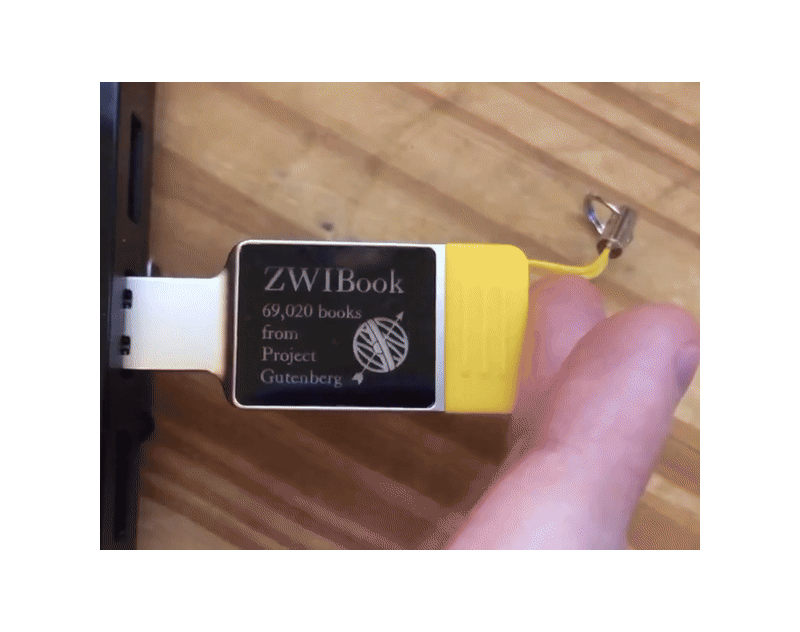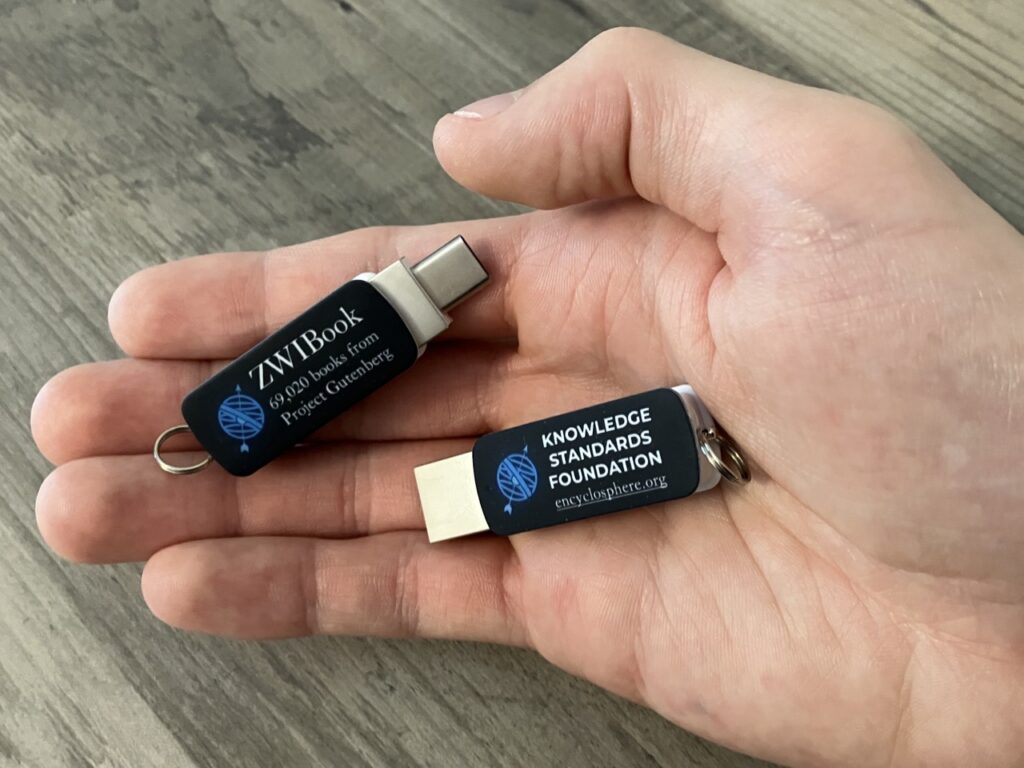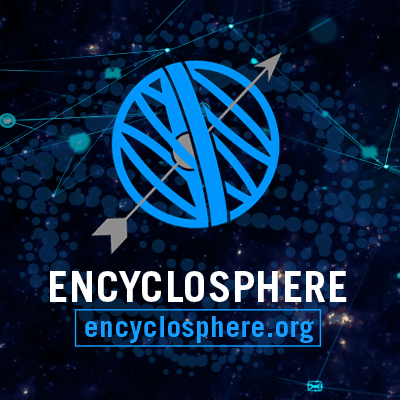You can, if you have a ZWIBook flash drive. Version 1.1 out now!

You can get all those books on a flash drive for a $50 donation to the 501(c)(3) Knowledge Standards Foundation. $100 for a signed, numbered copy. The glowing reviews are in!
First posted, September 19, 2024; v1.1 announced here, November 19, 2024.
If you are reading this blog, you are a certifiable smart person and probably know about Project Gutenberg (PG). They have been collecting digital editions of public domain books since Michael S. Hart first typed in the Declaration of Independence and posted it online in 1971. Since then, the project has added free books at an increasing rate, passing the 70,000 mark this year.
If they’re online, why make these books available on a thumb drive?
It’s a massive library in your pocket. With almost 70,000 local copies of books, it’s pretty darned cool to know that, as long as you have this drive, you will be able to access all those books, even in a nuclear Armageddon. The fact that you can search and read the books, and highlight and take notes on them, on any computer with the drive just makes it better.
Anti-censorship. We are preserving knowledge—future-proofing culture, you might say—in the face of the very real threat of censorship. Having many copies of these thumb drives, with almost 70,000 digitally signed book files, helps us as a society to guarantee that these books will never disappear. You can participate in this preservation effort!
It’s a backup of Western civilization.
AI concerns. Our world is increasingly having to deal with AI-generated text, which makes it possible for unscrupulous people to counterfeit data. Your copy of the Project Gutenberg library is a massive trove of human-written content; the fact that the books are stored offline means your copies are stable and unchanging; and the digitally-signed ZWI format proves they are reliable.

Support the 501(c)(3) nonprofit Knowledge Standards Foundation. Free knowledge is what the Internet is for, as far as I’m concerned. In the mission for free knowledge, PG preceded Wikipedia and, more recently, the Knowledge Standards Foundation, which is collecting all the free encyclopedic data into a single open network, the Encyclosphere. The KSF received FUTO‘s first “legendary grant,” for which we’re grateful. These funds are almost gone, however. So we made the drives as a mission-aligned fundraising tool.
Hey, this software is actually good! The reviews are in, and everybody loves ZWIBook. I wrote the software myself…well, ChatGPT and I did. But I am a stickler for testing, so there are hardly any bugs. I put in the time needed to make this software delightful to use. Title search is fast and works well. The category feature is useful. The bookshelf lets you highlight particular books in the library and track your reading history.
Can you read the books on your phone, tablet, or ereader? Not straight from the drive, but yes—even without an internet connection, you can export the books. Then just send them to your phone and you’re reading your personal copy.

And as far as the reader itself goes, it works well: font choice and size, page zoom, bookmarks, highlighting and notes, find-on-page, and research tools (like submitting text to translate and to chatbots for comment). In my tests, the files looked consistently good—sometimes better than the Project Gutenberg originals.
Should be great for:
- Students
- Teachers
- Scholars
- As a gift
I worked with Larry to help make Project Gutenberg contents available for the ZWIBook flash drive, and I’m very pleased with the outcome. One of the goals of Project Gutenberg is for individuals to have access to all literature and all the world’s knowledge. One of the ways of helping that happen is for people to have their own library – in their pockets, on their computers and mobile devices – and be able to share it. The ZWIBook Flash Drive does this: You get a massive personal library that you can read, annotate, and share. The collection is nicely done, with a helpful interface. The software gives you capabilities to search and use the library.
—Dr. Greg Newby, Director and CEO of Project Gutenberg Literary Archive Foundation, and owner of #26.
Where to order. Go to shop.encyclosphere.org to get yours!




Leave a Reply